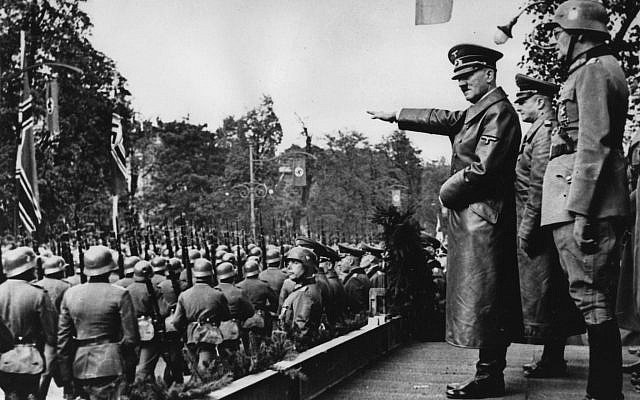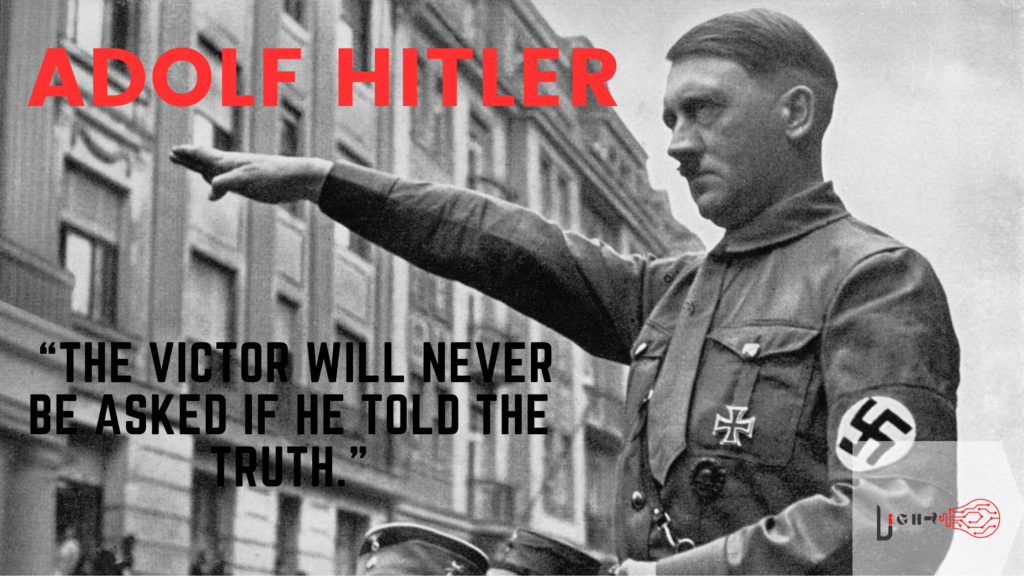Adolf Hitler remains one of the most infamous figures in history. His life, marked by a meteoric rise to power and a catastrophic impact on the world, continues to be a subject of intense study and reflection. This blog explores Hitler’s life, his ideology, and the profound consequences of his actions.
Life and Background
Adolf Hitler was born on April 20, 1889, in Braunau am Inn, Austria-Hungary. His childhood was relatively uneventful, marked by a strict father and a loving mother. Hitler struggled in school and eventually dropped out with aspirations of becoming an artist. He moved to Vienna, where he lived a bohemian life, struggling to make ends meet while developing a deep interest in German nationalism and anti-Semitic ideologies.
The outbreak of World War I gave Hitler a sense of purpose. He enlisted in the German Army and served on the Western Front, where he was wounded and decorated for bravery. The war’s end and Germany’s defeat left him disillusioned and angry, feelings that would fuel his future political ambitions.
Rise to Power
Hitler’s political career began in 1919 when he joined the German Workers’ Party, later renamed the Nazi Party. His oratory skills and charismatic leadership quickly elevated him to prominence within the party. He rebranded the Nazi Party with symbols like the swastika and developed a platform based on nationalism, anti-Semitism, and anti-communism.
The economic turmoil and political instability of the Weimar Republic provided fertile ground for Hitler’s rise. In 1923, he led an unsuccessful coup known as the Beer Hall Putsch, resulting in his imprisonment. During this time, he wrote “Mein Kampf,” outlining his ideology and future plans for Germany. In 1919 hitler was appointed as a Chancellor. Once in power, he swiftly dismantled the democratic institutions, establishing a totalitarian regime.
Dictatorship and Policies
When hitler became a leader he implemented radical policies that reshaped Germany.He centralized power, eliminating political opposition through the Gestapo and SS. The Nuremberg Laws of 1935 institutionalized racial discrimination, particularly against Jews, stripping them of their civil rights and laying the groundwork for future atrocities.
Major emphasis was put by Hitler on his economic policies towards rearmament and autarky which consequently led to an extensive military build up; For maintaining control, propaganda played a major role with Joseph Goebbels leading it. The Aryan racial supremacy was maintained while education and youth programs were used to indoctrinate the young people into the Nazi world. Apart from this, these policies remodeled Germany economically and socially but also formed a fertile ground for Hitler’s territorial aggression.
World War II and the Holocaust

World War II began on September 1, 1939, when Germany invaded Poland, prompting Britain and France to declare war. Hitler’s Blitzkrieg tactics initially brought swift victories across Europe. However, the invasion of the Soviet Union in 1941 marked a turning point, leading to a prolonged and brutal conflict.1
Concurrently, Hitler’s regime orchestrated the Holocaust, the systematic extermination of six million Jews and millions of others deemed undesirable. Concentration camps like Auschwitz became symbols of the Nazi atrocities. The war extended beyond Europe, drawing in the United States after the attack on Pearl Harbor. As the war dragged on, Germany faced mounting losses. Allied forces made significant advances by 1944, closing in on Berlin.
Downfall and Death
By early 1945, Germany was on the brink of defeat. Allied forces advanced from the west, and Soviet troops encircled Berlin from the east. Hitler’s leadership became increasingly erratic as defeat loomed. On April 30, 1945, as Soviet forces closed in, Hitler committed suicide in his bunker. His death marked the collapse of the Nazi regime. Germany surrendered unconditionally on May 8, 1945, bringing an end to World War II in Europe. Kershaw describes Hitler as “the embodiment of modern political evil”.
Adventure Awaits: Explore the Hidden Gems of the Andaman and Nicobar Islands
To know more click here:https://light.vintbit.com/uncategorized/https-light-vintbit-com-uncategorized-andaman-and-nico-bar-islands/
Legacy and Impact
Adolf Hitler’s legacy is one of unprecedented destruction and human suffering. His ideologies and actions led to the deaths of millions and caused immense global upheaval. The Holocaust remains one of the darkest chapters in human history, a stark reminder of the consequences of hatred and bigotry. Hitler’s regime fundamentally altered the political and social fabric of Germany and had lasting repercussions worldwide.
By exploring Hitler’s life and the impact of his actions, we gain crucial insights into the forces that shaped the 20th century. His story is a cautionary tale about the vulnerabilities of democratic institutions and the catastrophic potential of extremist ideologies. Understanding this history helps us build a future that values human rights and stands resilient against the forces of hatred and division.

